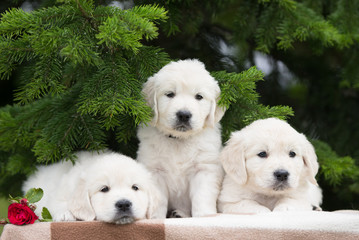When you get your new puppy home, you’re excited to watch him grow and develop. But just how fast will he go? Though a puppy’s growth timeline varies widely based on breed, sex, genetic lines, and other factors, most puppies follow a general development pattern. From their first encounter with their new litter mates to their first trip outdoors as adult dogs, puppies undergo many changes in their first few weeks of life.
Categorize a puppy’s developmental milestones into three groups: socialization and trust, sensory and cognitive development, and physical maturation. Each stage has its own set of indicators that indicate how your puppy is progressing. Understanding what to expect from your pup at each stage can help you better meet his needs and avoid potential problems.
If you’re considering adopting a puppy between 1-8 weeks old (a ‘socialization window’), this article is for you. We know that it can be challenging to find trusted information about puppy growth at the best of times, primarily online. We share everything you need about your dog-to-be in this handy blog post.
Puppy Stages of Development from Birth to 8 Weeks:
Puppies go through a series of developmental stages from birth to 8 weeks old. Significant physical, cognitive, and social milestones mark these stages. Below is a detailed overview of the development of puppies from birth to 8 weeks old.
Birth to 1 Week Old: Puppies are Born Blind and Deaf

When puppies are born, their brains are still developing and cannot process visual or auditory stimuli. This is why they keep their eyes and ears closed. However, their other senses, such as smell and touch, are already well-developed.
Puppies’ eyes typically open between 10 and 16 days of age. Their ears will also open around this time. At first, their vision and hearing will be blurry and muffled, but they will quickly improve.
Newborn puppies have all their teeth but start using them at around 3-4 weeks old. They will begin exploring their curiosity and chewing on objects at this age.
Puppies at this age are still very dependent on their mothers for food and warmth. Remember to feed them every 2-3 hours and make sure they stay comfy and secure.
One to Two Weeks Old: Puppies’ Senses Develop, and They Start to Explore
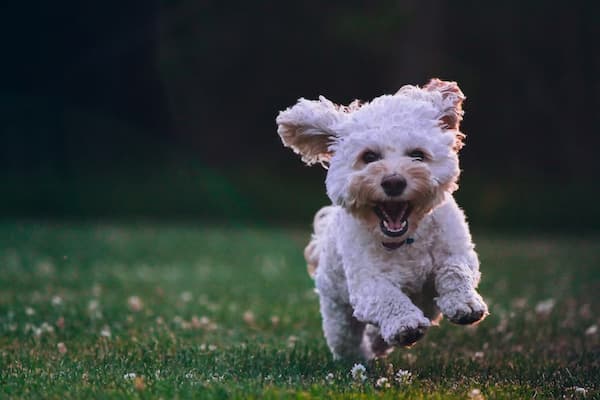
Newborn puppies are born blind, deaf and need their mother for survival. However, their senses develop rapidly in the first few weeks of life.
- Sight: Puppies’ eyes usually open around day seven or eight. At first, their vision is blurry, and they can only see a few inches before them. However, their dream quickly improves over the next few weeks.
- Hearing: Puppies’ hearing also develops rapidly in the first few weeks of life. Their ears usually open around the same time as their eyes. At first, their hearing is muffled, but it quickly improves.
- Smell: Puppies’ sense of smell is already well-developed at birth. They use their sense of smell to identify their mother and littermates. They also use their sense of smell to explore their surroundings.
- Touch: Puppies’ sense of touch is also well-developed at birth. They use their sense of touch to explore their surroundings and to interact with their mother and littermates.
In addition to their senses, puppies develop their coordination and movement in the first two weeks of life. They begin to crawl and wag their tails. They may also play with each other and explore their surroundings more.
By the end of the second week, most puppies will have all their teeth. They will also learn how to control their bladder and bowels.
Two to Three Weeks Old: Puppies Become More Active and Playful
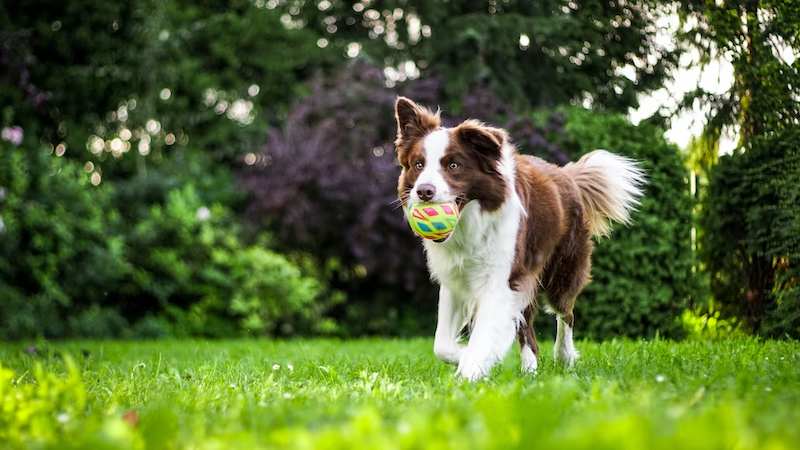
Puppies between 2 and 3 weeks old explore their surroundings more and become more active. Their coordination will improve, and they can walk and run around more easily. This is also when they start playing with other puppies and learning critical social skills.
During this stage, puppies are also developing their senses. Their vision and hearing will improve, and they will start to explore their surroundings using their senses of smell and touch.
It is essential to provide puppies with plenty of opportunities to explore and play during this stage of development. This will help them to develop their physical and social skills and to learn about the world around them.
1 to 3 Weeks Old: Socialization and Trust Development
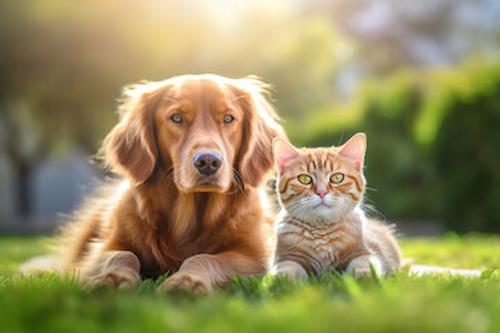
One of the most essential steps in a puppy’s development is building trust between the puppy and the human. Puppies learn to trust humans through socialization and positive experiences that balance their genetic instinct to be wary of everything. For a puppy, every new venture is a chance for him to build or break trust with his human companions.
A puppy’s immune system has not fully developed, so he’s particularly vulnerable to illness. The more positive experiences you can give him, the quicker he’ll learn to trust the human world around him.
Socialization should start even before you bring your puppy home from the breeder. It’s essential to spend some quality time with your new furry friend, and get spending will help them settle into their new home getting family much more quickly.
Three to Four Weeks Old: Puppies Start Weaning Off Their Mother’s Milk and Socializing
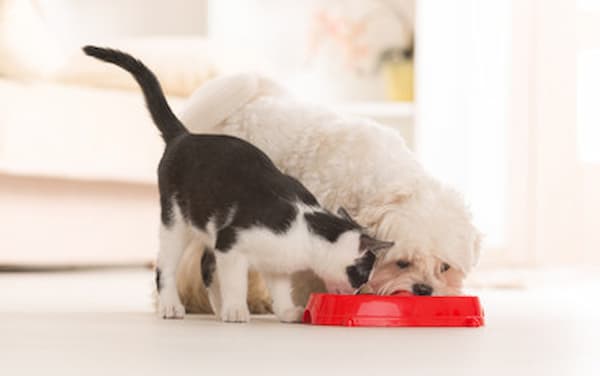
Puppies start to wean off their mother’s milk at three to four weeks old and eat solid food. This is a significant milestone in their development, marking the beginning of their transition to independence.
During this time, puppies are also starting to explore their surroundings more and play with other puppies in their litter. This is an important time for socialization, as it helps puppies learn how to interact with other dogs and people. It is also when puppies develop their senses, such as sight, hearing, and smell.
It is essential to provide puppies with plenty of opportunities to socialize during this stage of development. Bringing puppies to puppy parks helps them socialize and meet other animals, people, and puppies. Socialization is essential for puppies to develop into well-adjusted dogs.
Four to Five Weeks Old: Puppies Become More Independent and Exploratory
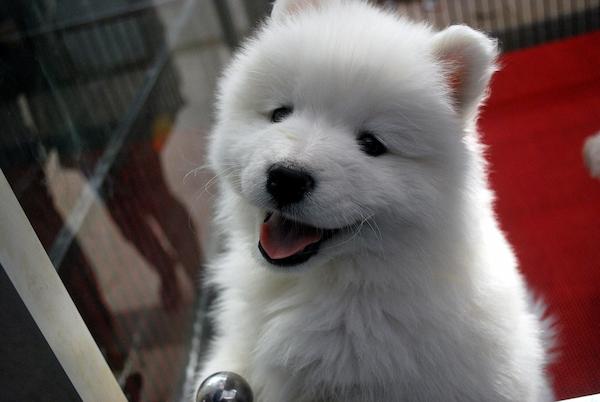
Puppies at four to five weeks old are becoming more independent and exploratory. They are starting to spend more time outside their mother’s den and exploring their surroundings. Their play is becoming more coordinated, and they may begin to bark and howl.
Puppies at this age are also starting to lose their baby teeth and develop their adult teeth. They continue to need frequent meals but will begin to eat less overall as they grow.
3 to 5 Weeks Old Puppy: Sensory development:
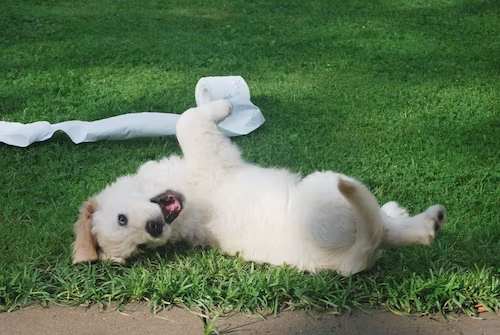
Puppies’ most important sense during these weeks is their smell. At three weeks old, they can smell food beyond their reach. By five weeks old, they can smell the world around them. During this stage, a puppy’s eyes and ears develop, but not as rapidly as their smell.
Focusing on smell at this stage helps puppies form stronger bonds with their littermates and mother. It also makes it easier for them to learn to find food, water, and suitable sanitation areas. As a new puppy owner, you can help your puppy stay healthy by keeping their environment clean and smelling clean.
Five to Six Weeks Old Puppy: Fear Period Begins
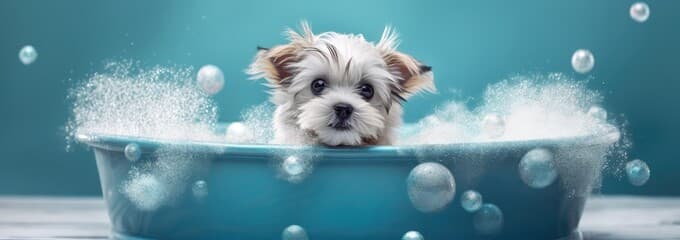
Puppies at this age are starting to develop a fear of new things. This is known as the fear period, a normal part of puppy development. During this time, puppies may hesitate to explore new surroundings or meet new people. They may also be more likely to bark or cower at strange things.
It is essential to be patient and understanding during the fear period. Please do not force your puppy to interact with something they are afraid of. Instead, please provide them with positive experiences with new things in a safe and controlled environment.
For example, you could introduce your puppy to a new toy or object in a quiet room where they feel safe. If your puppy seems interested, you can slowly and gradually introduce them to more and more new things.
With patience and understanding, your puppy will eventually overcome their fear period and become more confident and outgoing.
6 to 8 Weeks Old Puppy: The Puppy’s Critical Socialization Period

Puppies are good at learning and making friends during their critical periods. If you have a new puppy, it’s essential to introduce them to different places and situations. Hence, they become confident and adaptable dogs.
If you have a new puppy, you must train them in other sites and conditions. Hence, they become confident and adaptable dogs.
Here are some of the things you can do to help your puppy during this critical period:
- Introduce them to new people: The more people your puppy meets, the less likely they will be to be fearful of strangers in the future.
- Take them to new places: Anything from the park to the grocery store. The more different environments your puppy experiences, the more comfortable they will be in a variety of situations.
- Socialize them with other dogs: Let them play with other animals in a secure, supervised area to keep your puppies safe and happy. They can learn so much from these interactions, and it’s an excellent way to socialize and have fun!
- Start basic training: Teaching your pet to sit, stay, and come helps them focus and create a daily routine.
- Be patient and consistent: Being patient and consistent with your puppy during this time is essential. They are still learning and growing, so they will make mistakes. Just keep at it; they will eventually get the hang of it.
Puppies must have positive experiences growing up to become happy and well-behaved dogs.
5 to 8 Weeks Old Puppy: Cognitive development

Puppies’ cognitive development is kicked into high gear at six weeks and continues rapidly until eight weeks. Puppies improve their memory and learn how to interact with the world when they are young. Though their eyesight and hearing fully develop at six weeks, their cognitive development means they still acquire the skills to use them fully.
This is the time to introduce them to toys, people, and places. They need many positive interactions to develop social skills and avoid mental or behavioral problems.
Keep things upbeat and fun, and avoid negative reinforcement during this crucial time. Puppies are still learning to interpret the world around them. Too much negative interaction could lead to anxiety or behavioral issues later in life.
8 Weeks and Beyond: Physical Maturation
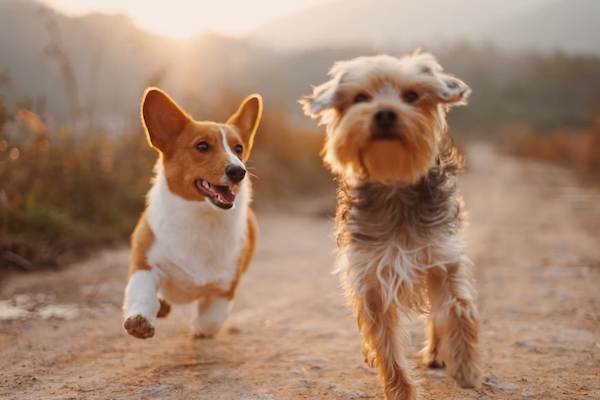
Between 8 and 10 weeks, puppies reach full physical maturity. They will have grown to their full adult size and be ready to start housebreaking training. They will also have reached sexual maturity, so they may begin to develop a more vital interest in mating with other dogs. You may also see signs of genetic traits emerging during this time.
When you meet your puppy’s parents, you might notice that your puppy looks more like one parent than the other. You can also observe how your puppy plays with other dogs, chews on toys, and plays with their human companions. You may even see them acquiring their first set of permanent teeth. As your puppy reaches sexual maturity, you must adjust their daily routine to accommodate their changing needs and hormones.
Puppies need human help to develop their bones and teeth in their first year. To keep your puppy healthy and happy, give them playtime, good food and water, and time to rest.
Conclusion:
Did you know that puppies experience four distinct stages of development as they grow up? These stages are birth to 4 weeks, 4 to 8 weeks, 8 to 12 weeks, and 12 to 6 months. It’s fascinating to observe how they transform during each stage.
During each stage, puppies experience different physical, mental, and emotional changes. Suppose you want your furry little friend to grow up healthy and happy. In that case, giving them good experiences and surroundings as they go through each stage of their development is essential.
Puppies need to be socialized and trained during the puppyhood years. Socialization helps puppies learn to interact with people and other animals positively. Training helps puppies learn basic commands and behaviors.
Suppose you are thinking about getting a puppy. In that case, it is essential to research and prepare for the challenges and rewards of puppyhood. You can also visit our website for more puppy development and care information.
What are the hardest puppy weeks?
The first 8 weeks are the hardest for puppies as they adjust to life outside the womb. They must be fed, potty trained, and socialized during this time.
What to expect from 4-week-old puppies?
At four weeks old, puppies are starting to become more independent. As your little ones grow, they must be fed and trained to use the bathroom properly. However, they will also begin to explore their surroundings and play with toys, which will bring them so much joy!
Are puppies easier at 3 months?
Puppies are generally easier to care for at three months old. They are more independent and have learned basic commands. However, they can still be destructive and have accidents.
Do puppies need milk after 4 weeks?
Puppies can start to eat solid food at around four weeks old. However, they will still need to drink milk until they are six months old.
What do 3 week old puppies eat?
3-week old puppies should eat a diet of puppy milk replacer. You can also give them small amounts of soft food, such as mashed banana or cooked chicken.
Will 4 week old puppies cry when hungry?
Yes, 4-week-old puppies will cry when they are hungry. They will also call when they need to go potty or if they are scared or uncomfortable.
How often do 3 week old puppies poop?
3-week old puppies will poop about every 2 hours. They should be taken outside to potty frequently.
What is the rule of 7 in puppy culture?
The rule of 7 states that puppies learn new things in 7s. For example, they learn to recognize their owners in 7 days and sit in 7 weeks.
How do you train a puppy easily?
There are a few things you can do to train your puppy quickly. First, be consistent with your training. Second, use positive reinforcement. Third, start training early.
What are the most important things to do for a puppy in the first 8 weeks?
- Socialization: Introduce your puppy to new people, places, and things. This will help them become comfortable with their surroundings and less likely to be fearful or aggressive as they age.
- Training: Start basic training, such as sit, stay, and come. This will help your puppy to learn to obey commands and behave properly.
- Weaning: Gradually transition your puppy from its mother’s milk to solid food.
- Housebreaking: Start housebreaking your puppy as soon as possible. This will help them to learn to go to the bathroom in the appropriate place.
- Vaccinations and deworming: Get your puppy vaccinated and dewormed according to your vet’s recommendations. This will help to protect them from diseases.
What are the signs of a healthy puppy at 1-8 weeks?
- Alert and responsive: Puppies should be alert and responsive to their surroundings. They should also be curious and playful.
- Healthy appetite: Puppies should have a healthy appetite and eat and drink regularly.
- Shiny coat: Puppies should have a shiny coat free of mats or dandruff.
- Clear and bright eyes: Puppies should have clear and bright eyes free of discharge.
- Moist and cool nose: Puppies should have a wet and cool nose.
- Pink and healthy gums: Puppies should have pink and healthy gums.
- Normal bowel movements: Puppies should have regular bowel movements that are not watery or bloody.
Contact your vet if you notice any signs of lethargy, vomiting, diarrhea, or a lack of appetite.
